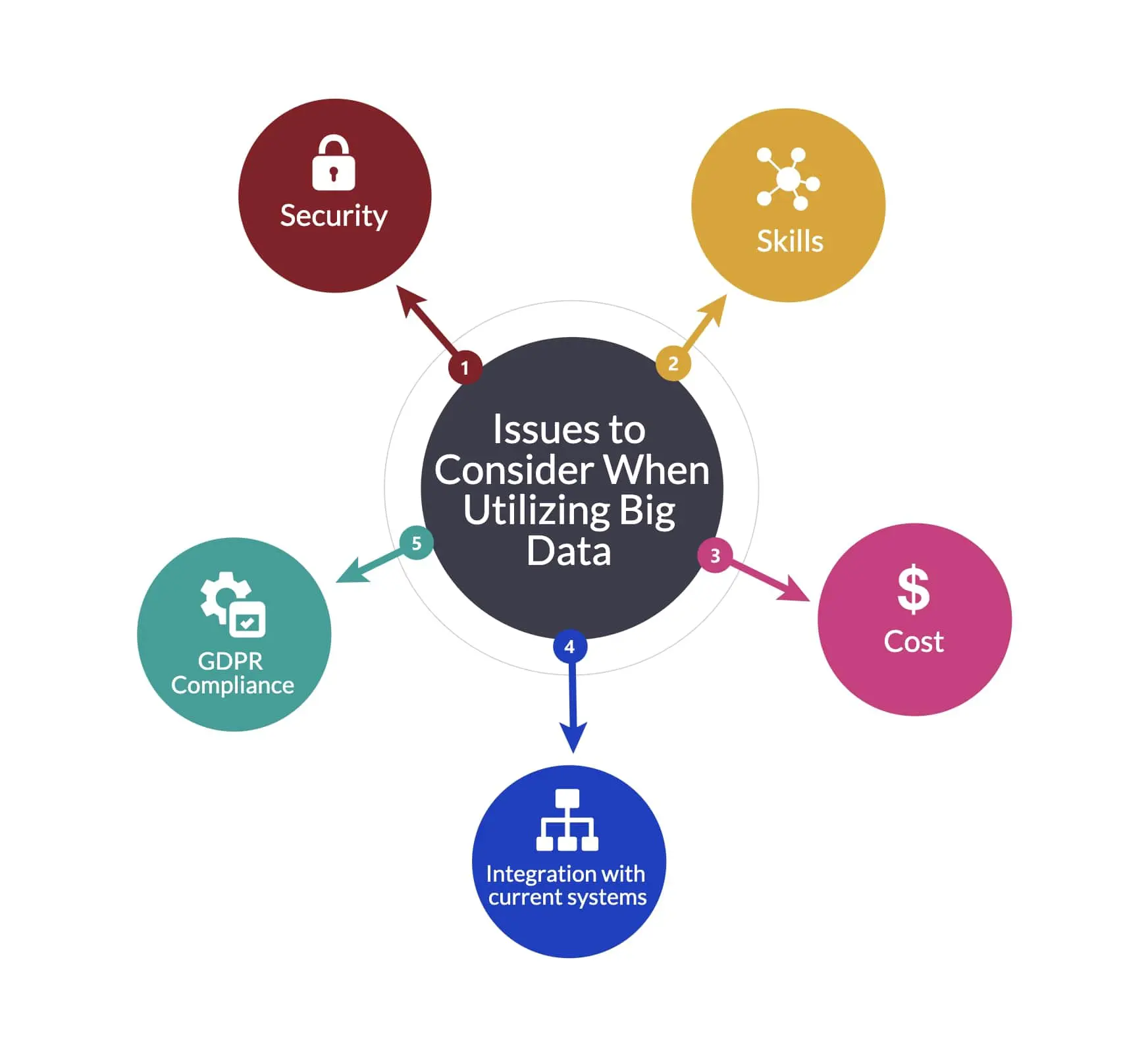One of the greatest assets a company can have is knowledge about its customers. With the advancement of technology, it is now easier and cheaper than ever to collect and store large amounts of data for long periods of time. While the advantages of big data storage and processing are endless, it’s crucial to consider the issues surrounding big data privacy and compliance.
What is Big Data?
Big data is the collection, storage, and processing of data sets that may be analyzed to determine or predict human behavior. The collection of big data is all around us- the websites we visit, the purchases we make, the cars we drive, the clothes and food we buy is all data being stored, processed, and purchased by companies in order to market to us better, redefine product development, and change the way operations are organized.
Big data is a commodity and an asset for businesses. According to an Accenture study, 79% of users of big data “agree that companies that do not embrace big data will lose their competitive position and may even face extinction. Even more (83 percent) have pursued big data projects in order to seize a competitive edge.” Further, a recent Harvard study found that companies using data analytics effectively will see an increase in productivity and profit gains of 5 or 6 percent above their competitors. With extension at stake, it’s clear that big data is a necessary investment, but one that comes with many concerns and issues that must be considered.
5 Issues to Consider for Big Data Privacy and Compliance
- Security
51% of companies using big data report that security is their number one concern and challenge when implementing big data. The responsibility of using individual’s data as a part of your marketing or processes carries some risk. Data breaches and leaks have costly effects on any company, and even though 2018 has seen a decrease in data breaches with 700 publicly disclosed breaches, each of those breaches has cost on average $141 per data record, putting the global cost average at $3.6 million.
- Skills
Because big data is relatively new to the job force, there are few experts that can effectively manage and mitigate the information provided. The Accenture study found that 57% of companies using big data relied on the help of outside consultants. The need for data scientists will only increase as the demand and accessibility of big data increases, and nearly 91% of companies surveyed plan on increasing their data science expertise within the next year, but currently there aren’t enough experts to meet the demand.
- Cost
Many companies using big data are large organizations with seemingly endless budgets, but because the price to collect and store data has dramatically reduced, many mid-sized and small businesses are beginning to utilize big data. While the cost to collect and store is relatively cheap, the cost to process and analyze data is still very expensive. 47% of companies using big data report that budget concerns are their greatest challenge. It’s important to consider the cost of taking raw data and analyzing it so that it is useable towards business objectives.
- Integration with current systems
35% of companies report implementing big data analytics with their current system as a challenge. Many systems are static and out of date, and therefore are time consuming or impossible to integrate with new data. ‘Big Data: What’s Your Plan’ an article from McKinsey and Company found that, “What’s needed are intuitive tools that integrate data into day-to-day processes and translate modeling outputs into tangible business actions.”
- GDPR Compliance
On May 25th, 2018 the EU implemented legislation that impacts the way businesses across the world store, process, and analyze data of EU citizens. There are many aspects to GDPR compliance and for many companies it has become standard regulation for data processing.
LogicGate Can Help
LogicGate has multiple platforms that will help mitigate the issues around big data compliance. Our GDPR compliance solution is a centralized system that can rapidly implement the new processes needed to achieve GDPR compliance, while our Cyber Risk & Controls Compliance solution provides enterprises with the technology necessary to capture, analyze, and mitigate information risk.
While the issues surrounding big data privacy and compliance are numerous and come with extensive responsibilities, it is clear that in order for a company to innovate and move forward, utilizing big data analysis towards business objectives is a must.

